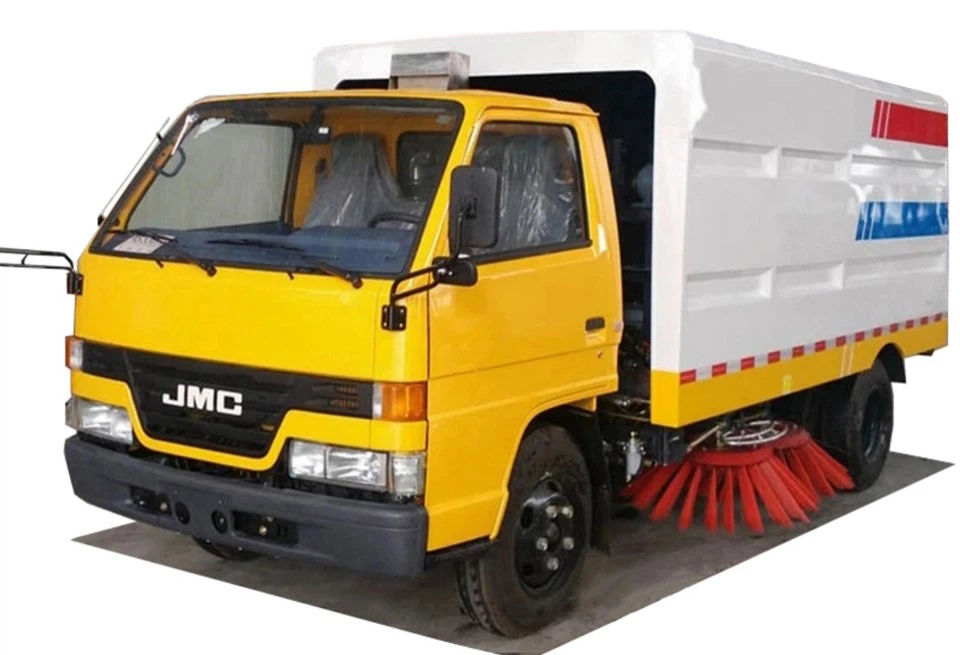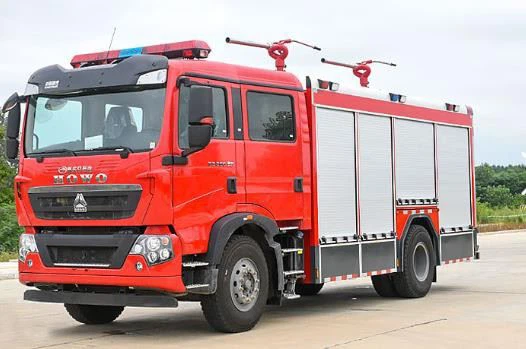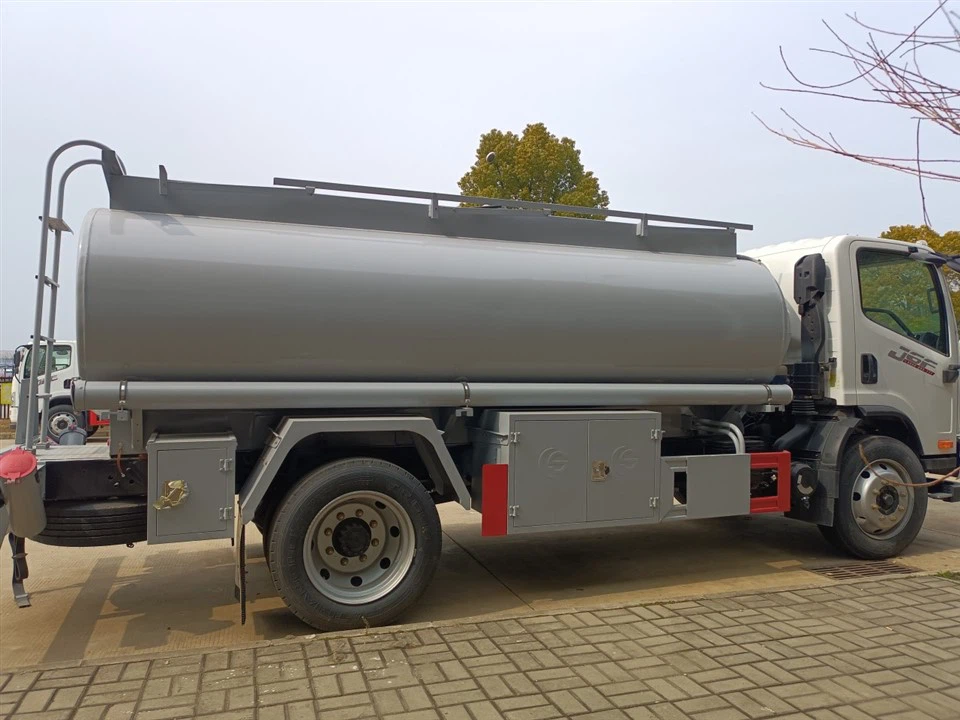Finding the Best Sanitation Truck for Sale: A Comprehensive Guide

Sanitation trucks are essential for maintaining cleanliness and hygiene in cities and communities. They are designed to collect, transport, and dispose of waste efficiently. If you’re in the market for a sanitation truck, this guide provides all the information you need, including types, features, buying tips, and answers to common questions to help you make an informed decision.
Understanding Sanitation Trucks
Sanitation trucks come in various types and sizes, each tailored for specific waste disposal needs. This section outlines the primary functions and benefits of using these vehicles.
The Role of Sanitation Trucks
Sanitation trucks play a crucial role in municipal waste management. They help maintain public health by ensuring that waste is collected regularly and disposed of properly. Their main functions include:
- Collection of refuse, including household waste, recycling, and yard debris.
- Transportation of waste to designated disposal sites or recycling centers.
- Minimizing environmental impact through efficient waste management practices.
Types of Sanitation Trucks
Before purchasing, it’s important to understand the different types of sanitation trucks available.
Rear Loader Trucks
Rear loader trucks are equipped to handle large volumes of waste. They feature a compactor that compresses waste for maximum efficiency.
Side Loader Trucks
These trucks are designed for residential collection. The side-loading feature allows for easy access and efficient collection without the need for extensive driver maneuvering.
Front Loader Trucks
Front loaders are ideal for commercial waste collection. They can handle dumpster pickups and are able to lift heavy containers.
Vacuum Trucks
Used for liquid waste, vacuum trucks are equipped to handle sewage and hazardous materials. Their design allows for safe and efficient collection of liquids.
Key Features to Look for in a Sanitation Truck
Understanding the essential features of sanitation trucks can help you choose the right model for your needs. Here are several key features to consider:
Compaction Ratio
The compaction ratio determines how much waste the truck can hold. Higher ratios mean more efficient usage of space.
Payload Capacity
Consider the payload capacity, which refers to the weight the truck can carry. This is crucial for ensuring that you can manage waste effectively.
Fuel Efficiency
Fuel consumption can significantly impact operational costs. Look for trucks designed to optimize fuel efficiency.
Maintenance and Durability
Choose sanitation trucks that are built with durability in mind. Heavy-duty materials and components will ensure longevity and decrease the frequency of repairs.
Ergonomic Design
An ergonomic design can improve safety and comfort for your drivers. Features like easy controls, good visibility, and accessible entry points are essential.
Where to Buy Sanitation Trucks
Knowing where to buy a sanitation truck is key to finding the right vehicle at a reasonable price.
Dealerships
Many manufacturers sell sanitation trucks through authorized dealerships. This option often provides the best selection, along with warranties and financing options.

Online Marketplaces
Websites like eBay, Craigslist, and specialized truck sales websites often list both new and used sanitation trucks. It’s vital to conduct thorough research and verify the seller’s reputation.
Auction Houses
Public auctions can be a source of great deals. Government agencies often sell surplus or used sanitation trucks, making auctions a good place to find budget-friendly options.
Cost of Sanitation Trucks
The price of sanitation trucks varies widely based on factors such as type, brand, features, and condition. Here’s a breakdown:
| Type of Sanitation Truck | Approximate Price Range |
|---|---|
| Rear Loader | $150,000 – $300,000 |
| Side Loader | $100,000 – $250,000 |
| Front Loader | $120,000 – $270,000 |
| Vacuum Truck | $200,000 – $500,000 |
Financing Options for the Purchase
Financing a sanitation truck can make the investment more manageable. Here are some common financing options:
Loans
Traditional bank loans or specialized vehicle financing from lenders may be available, depending on your credit history and business plan.
Leasing
Leasing allows you to use a sanitation truck without the upfront costs of purchasing. This option may also include maintenance packages.
Government Grants and Subsidies
In some cases, government programs offer financial assistance for purchasing environmentally friendly sanitation vehicles. Research available grants in your area.
Maintenance Tips for Sanitation Trucks
Regular Inspections
Conduct thorough vehicle inspections regularly to identify potential issues before they become costly repairs.
Fluid Changes
Regular oil and fluid changes are vital. They help keep the engine running smoothly and improve fuel efficiency.
Brake Checks
Since sanitation trucks are often stopping and starting, checking the brakes frequently ensures safety and proper function.

Tire Maintenance
Ensure proper tire inflation and consider rotating tires to extend their lifespan and improve fuel efficiency.
Common Challenges in Owning a Sanitation Truck
While sanitation trucks are indispensable vehicles, they also come with challenges.
High Operational Costs
Fuel, maintenance, and insurance can accumulate, so it’s important to budget carefully to manage these expenses.
Regulatory Compliance
Staying compliant with local laws and regulations regarding waste management is essential, which may require additional paperwork and inspections.
Driver Training
Investing in thorough training for drivers is necessary to operate the trucks safely and efficiently. This will help reduce accidents and operational losses.

Frequently Asked Questions (FAQs)
1. How do I know what type of sanitation truck I need?
Your needs typically depend on the volume of waste you handle and the type of waste being collected. Assess your waste management requirements to choose the best truck type.
2. Are used sanitation trucks reliable?
Yes, used sanitation trucks can be reliable if properly maintained. It’s important to check the vehicle’s history and condition before purchase.
3. What should I look for in a sanitation truck inspection?
During an inspection, look for signs of wear, rust, fluid leaks, and check operational components, such as the lift and compactor systems.
4. Can I customize my sanitation truck?
Yes, many manufacturers offer customization options based on your specific operational needs. This can include adding features like additional storage compartments or specialized collection equipment.
5. How can I reduce operational costs for my sanitation truck?
Caring for your truck properly, keeping up with maintenance, and training drivers to operate the vehicle efficiently can help reduce costs significantly.
6. Is it possible to finance my sanitation truck purchase?
Yes, various financing options, including loans, leasing, and government grants, can help ease the financial burden of purchasing a sanitation truck.
